- Home
- Melissa de la Cruz
Frozen hod-1 Page 2
Frozen hod-1 Read online
Page 2
Wes was from New Vegas and found the sound of casino clamor soothing. The Loss was still recovering from that spectacular bombing that had torn the place in half a few weeks before. A grid of gas heaters were strung across the ceiling as a temporary fix; their fiery glow the only defense against the never-ending winter outside. Snow was coming down hard, and Wes watched the dense flakes vaporize, each flake sizzling like oil in a frying pan as it hit the grid. He brushed back his hair as an errant snowflake drifted through the mesh to land on his nose.
He shivered—he never could get used to the cold; even as a boy he’d been teased for being too warm-blooded. He was wearing several layers of shirts underneath his sweater, the ghetto way to keep warm when you couldn’t afford self-heating clothing powered by a fusion battery. “I’m sorry,” he said. “But I can’t.”
Bradley ignored him and motioned the waitress over. “Two steaks. Tuscan style, Wagyu. The biggest you got,” he ordered. “I like my beef massaged,” he told Wes.
Beef was a rarity, unaffordable to the general population. Sure, there was a lot of meat around—whale, walrus, reindeer, if you could stomach it—but only the heat-elite ate beef anymore. Especially since the only cattle left were nurtured in expensive temperature-controlled stables. The cow that died to make his steak probably lived a better life than he did, Wes thought. It had probably been warm.
He locked eyes with his dinner companion. “You need another CEO kidnapped? I’m your boy. But I can’t do this.”
As a former Marine sergeant, Wes had headed one of the most sought-after mercenary teams in the city. Correction: one of the formerly most sought-after teams. He’d done well in the casino wars until he got on the bad side of one of the bosses for refusing to torch a rival’s hotel during Mardi Gras. Since then, all the work came from the secret divisions of the military: protection, intimidation, kidnapping and rescue (more often than not Wes found himself on both sides). He’d been hoping for one of those gigs.
“Wesson, be reasonable,” Bradley said, his voice icy. “You know you need this job. Take it. You’re one of the best we’ve ever had, especially after that victory in Texas. Shame you left us so soon. I’ve got a hundred guys champing at the bit to take this gig, but I thought I’d throw you a bone. Heard you haven’t worked in a while.”
Wes smiled, acknowledging the truth of the man’s words. “Except some assignments aren’t worth the trouble,” he said. “Even I need to be able to sleep at night.” He’d learned as much from his stint in the army, especially after what happened in Santonio.
“These marked factions who resist treatment and registration continue to pose a danger, and they need to be dealt with accordingly,” the older man said. “Look what they did to this place.”
Wes grunted. Sure looked like they found someone to do the casino hit he’d turned down, but what did he know. He only knew as much as the rest of them—that after the ice came, dark hair and dark eyes were the norm, and the rare blue- or green- or yellow-eyed babies were born with strange marks on their bodies.
Mages’ marks, the gypsies whispered, fortune-tellers who read palms and tarot in Vegas’s dark alleys. It’s started. Others will come out of the ice and into our world.
This is the end.
The end of the beginning. The beginning of the end.
The marked children could do things—read minds, make things move without touching them, sometimes even predict the future. Enchanters, they were called, warlocks, “lockheads” and “chanters” in the popular slang.
The others who came out of the ice were smallmen, grown men the size of toddlers who were gifted with rare talents for survival, able to hide in plain sight or forage for food where none could be found; sylphs, a race of beings of luminous beauty and awesome power, it was said their hair was the color of the sun that was no more and their voices were the sound of the birds that no longer flew across the land; and finally the terrifying drau—silver-haired sylphs with white eyes and dark purpose. Drau were said to be able to kill with their minds alone, that their very hearts were made of ice.
The smallmen were rumored to live openly with their taller brethren in New Pangaea, but the sylphs and the drau kept to themselves, hidden in their remote mountain glaciers. Many doubted they truly existed, as very few had ever seen one.
In the past, the military had drafted the marked into its ranks, along with an elusive sylph or a smallman or two, but ever since that program ended in abject failure during the battle for Texas, government policy evolved to its current state of registration, containment, and blame. The marked were deemed dangerous, and people were taught to fear them.
But Wes was a Vegas native, and the city had always been a conglomeration of misfits living peacefully together for more than a hundred years since the world had been buried in sheets of ice. “It’s not that I don’t need the work, I do,” he said. “But not this.”
The stern-faced captain reached for the folder and flipped it open, paging through the documents. “I don’t see what the problem is,” he said, sliding it back across the table. “We’re not asking for much, just someone to lead the hired guns to clean up the rubbish in the Pacific. Someone like you, who knows the lay of the land—or the lay of the water, so to speak.”
The price was good, and Wes had done dangerous work before, sure, running people in and out of the Trash Pile, no questions asked. As Bradley said, he knew his way around the ruined seas, playing coyote to citizens seeking illegal passage all the way to the Xian Empire; or if they were particularly delusional, they’d ask him to find the Blue, the fabled nirvana that the pilgrims sought and no one had ever found, least of all Wes. But lately work had dried up for runners, as fewer and fewer chose to brave the difficulty of a dire ocean crossing, and even Wes was having second thoughts about his calling. He was desperate, and Bradley knew it.
“Come on, you haven’t even opened the folder,” his former captain said. “At least check out the mission.”
Wes sighed, opened the folder, and skimmed through the document. The text was redacted, black bars covered most of the words, but he got the gist of the assignment.
It was just as he’d guessed.
Dirty work.
Murder.
The waitress swung back with a couple of beers in frosted, oversize mugs. Bradley knocked his back while Wes finished reading the pages. This wasn’t his usual operation, a one-way ticket into the Pile where if anyone got hurt it was him and his boys. He could deal with that. A good run could keep his team out of the food lines for a month.
This was different. He’d done a lot to survive, but he wasn’t a paid killer.
Bradley waited patiently. No smile, no change in expression. His shirt was tucked a little too tight, hair clipped a little too short for a civilian. Even out of uniform, he had military written all over him. But the United States of America was not what it once was—no wonder everyone called it the “Remaining States of America” instead. The RSA: a handful of surviving states, and aside from its massive military machine that kept gobbling up new terrain, the country had nothing else and was hocked lock, stock, and barrel to its debtors.
The captain smiled as he wiped the froth from his lips. “Cakewalk, right?”
Wes shrugged as he closed the folder. Bradley was a hard man, one who wouldn’t blink twice before giving a kill order. Most of the time Wes followed those orders. But not this time.
In any other world, Wes might have grown up to be something else: a musician maybe, or a sculptor, a carpenter, someone who worked with his hands. But he lived in this world, in New Vegas; he had a team that counted on him, and he was cold and hungry.
When the waitress came back, she was wheeling a silver cart holding two wide platters, each one bearing a fat steak, charred on top and dripping juice over a bed of mashed potatoes. The smell of melted butter and smoke was tantalizing.
It was a far cry from the MRSs he was used to: Meals Ready to Squeeze. It was all he and his boys could afford la
tely: pizza squeezers, Thanksgiving dinner in a can. Some of it wasn’t even food, it came out of aerosol containers; you sprayed it directly into your mouth and called it dinner. Wes couldn’t remember the last time he’d had a hamburger, much less a steak, that smelled this good.
“So, you taking the job or not? Listen, these are hard times. Don’t sweat it. Everyone needs to eat. You should be thanking me for this opportunity. I came to you first.”
Wes shook his head, tried to get the smell of the steak out of his mind. “I told you, try someone else. You’ve got the wrong guy,” he said.
If Bradley thought he could buy him for the price of a meal, he was wrong. Wes styled himself after Paleolithic hunters he’d learned about in school, who kept their eyes trained on the horizon, always scanning, always searching for that elusive prize that would mean survival. But the tribesmen would fast for days rather than consume the meat of sacred animals. Wes liked that idea; it allowed him feel better about himself, that he wasn’t a vulture, one of those people who would do anything for a heat lamp. Wes didn’t have much, but he had his integrity.
The army captain scowled. “You really want me to send this back to the kitchen? I bet you haven’t eaten anything but mush for weeks.”
“Throw it in the garbage, what do I care,” Wes said as he tossed the folder back across the table.
Bradley straightened his lapels and shot him a withering look. “Get used to starving then.”
3
THE CASINO WAS BUZZING AS USUAL WHEN Nat arrived for work that evening. It had never even closed, not for a day, not for an hour; management didn’t care that there was a hole in the roof as long as the slot machines kept ringing. She nodded to Old Joe as she walked in and the wizened card shark smiled in greeting, his eyes disappearing into his cheeks. Joe was an anomaly, a rare bird, a man who had lived past his fiftieth birthday. He was also a legend at the casinos. Supposedly he’d been one of the smartest and most successful card sharks, and one of the most elusive—he’d brought down many a gambling hall, decimating coffers, staying just one step ahead of security. When he made his way to the Strip, the Loss offered him a job on the inside, rather than watch him walk away with their profits.
“You remind me of my niece who died in ’Tonio,” Joe had said when he’d hired her right off the felt, a skinny, starving thing who was on a winning streak at the poker tables. “She was like you—too smart for her own good.” Joe made her the same deal he gave all his fellow card counters. Work for me, help us turn in the other pros, I’ll give you a decent salary and keep you from getting beat up by the casino goons. He didn’t ask any questions about how she came to Vegas or what she was doing before, but he’d made good on his word, and got her set up.
Ask him, the voice ordered. Ask him about the stone. Do what we came here for. You have delayed long enough. The Map has been found, the voice kept telling her. Hurry, it is time.
What map? she had asked, even if she had a feeling she already knew the answer. The pilgrims called it Anaximander’s Map; it was said to provide safe passage through the rocky, perilous waters of Hell Strait to the island doorway that led to the Blue.
“Joe?” she asked. “You got a sec?”
“What’s up?”
“Can we talk privately?”
“Sure,” he said, motioning that she should follow him to a quiet corner, where a group of tourists were robotically feeding credits into the video poker stations. The smell of smoke was overpowering, and it reminded her of her dreams.
Joe crossed his meaty arms. “What’s on your mind?”
“What is that?” she asked, pointing to the stone he wore around his wrinkled neck. The one she had noticed the first time they had met, the one that the voice in her head demanded she ask him about the moment she had set foot in the city, and in this casino. She had put off the voice for as long as she could, fearing what would happen if she did as she was told.
“This?” the old man asked, lifting the stone to the light, where it shone brightly against the dim cocoon of the gambling hall.
That is the one! Take it! Take the stone. Kill him if you must. It is ours! The voice was frenetic, excited, she could feel the monster’s need thrumming in her veins.
“No!” she said aloud, shocking herself and startling a nearby gambler who dropped her token.
“What?” Joe asked, still admiring the shining stone.
“Nothing,” she said. “It’s pretty.”
“I won it at a card game a while back,” he said with a dismissive wave. “It’s supposed to be some kind of map, but it’s nothing.”
Take it! Take it! Take it from him!
“Can I hold it?” she asked, her voice quavering.
“Sure,” Joe said, slowly removing it from his neck. He hesitated for a moment before handing it to her. It was warm in her palm.
She studied the small blue stone in her hand. It was the weight and color of a sapphire, a round stone with a circle in the middle of it. She put it up to her eye and jumped back, startled.
“What happened? You see something?” Joe asked excitedly.
“No—no . . . nothing,” Nat lied. For a moment, the casino had disappeared and through the hole in the stone, all she could see was blue water, shimmering and clean. She peered into it again. There it was. Blue water.
That wasn’t all. Upon closer inspection she saw there was more, an image of a charted course, a jagged line between obstacles, a way forward, through the rocky and whirlpool waters of the Hellespont Strait.
The stone contains the map to Arem, the doorway to Vallonis, the voice murmured reverently.
This was why the voice had led her to New Vegas, to the Loss, and to Joe. It had facilitated her escape, it had brought her freedom, and it was relentlessly pushing her forward.
Come to me.
You are mine.
It is time we are one.
“There’s nothing,” she told Joe.
His shoulders slumped. “Yeah, that’s what I thought. It’s just a fake.”
She closed her fist around it, unsure of what would happen next, afraid of what she’d do if Joe asked for it back and hoping that he wouldn’t.
She stared down the casino boss. The monster in her head was seething. What are you waiting for! Take it and run! Kill him if he stops you!
“Give it to me,” she whispered, and somehow she knew he would do as told.
Joe flinched as if she’d hurt him. “Keep it,” he said finally, and walked away from her quickly.
Nat leaned against the wall in relief, glad for Joe’s sake that he had given it freely.
Later that evening she was awoken by the sound of a scuffle. Joe lived two rooms down from her, and she heard them—military police? Casino security? Bounty hunters? Whoever had come had kicked open his door and was taking him from his bed. She heard the old man begging, screaming and crying, but no one came to his aid. No neighbors dared to peer down the hallway, no one even asked what the matter was. Tomorrow no one would talk about what happened either, or what they had heard. Joe would simply be gone, and nothing more would be said. She huddled in her thick blankets as she heard them tearing his room apart, throwing open closet doors, upending tables, looking . . . looking . . . for something . . . for the cold blue stone that she now held in her hand?
If they had found Joe, it wouldn’t be long before they found her as well.
Then what? She could not look back, she had nothing to go back to, but if she kept moving forward . . . She shuddered, and her mouth tasted of ashes and cinder.
She held the stone in her hand. The map to Arem, doorway to Vallonis.
From the window, she saw them take Joe away in a straitjacket, and she knew what awaited her if she stayed. They would send her back to where she came from, back to those solitary rooms, back to those dark assignments.
No. She could not stay. She had to leave New Vegas, and soon.
What are you waiting for?
4
HIS MOTHER
HAD BEEN A SHOWGIRL. One of the prettiest in the business, his dad had liked to say, and Wes was sure he was right. Dad had been a cop. They were good people, fine citizens of New Vegas. Neither of them was still alive, each succumbing to the big C years ago. Cancer was a disease that was a matter of when, not why, and his parents had been no exception. But Wes knew they had died long before; they were empty shells after what happened to Eliza. His little sister whom no one could save.
He had his parents to thank for his good looks and his sharp wits, but not much else. As Wes walked away from the four-star meal, he was angry with himself for turning down Bradley’s offer, but angrier that it was the only avenue open to the likes of him. He could starve, he had starved before, but he hated the boys going hungry. They were the only family he had left.
When he was little, his mother would make him tomato soup and grilled cheese sandwiches. It didn’t happen often—she worked late nights and wasn’t usually awake when he was home from school. But once in a while, she would appear, last night’s makeup faint on her cheeks, smelling of perfume and sweat, and she would turn on the stove and the smell of butter—real butter, she always insisted they save up for it—would fill their small house.
The sandwich would be gooey on the inside and crisp on the outside and the soup—thin and red—was tart and flavorful, even if it was from a can. Wes wondered if he missed his mother or those sandwiches more. She had hid her disease from them, beneath the makeup. She had worked until the end, and one day, had doubled over, vomiting blood backstage. Dead in a matter of days.
Dad had tried to keep it together for a while, and his girlfriends—cocktail waitresses with outlaw accents, the occasional lap-girl from the clubs—(his mother would never have approved, she was a performer, a dancer, not a cheap grab-and-grope-girl) had been kind to Wes, but it was never the same.

 Gates of Paradise
Gates of Paradise Someone to Love
Someone to Love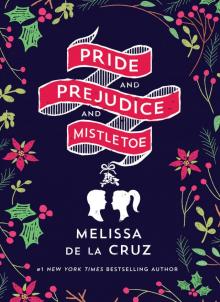 Pride and Prejudice and Mistletoe
Pride and Prejudice and Mistletoe Serpent's Kiss
Serpent's Kiss The Au Pairs
The Au Pairs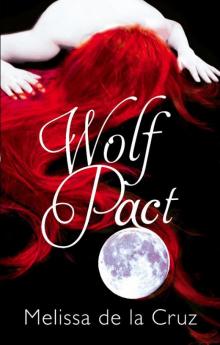 Wolf Pact
Wolf Pact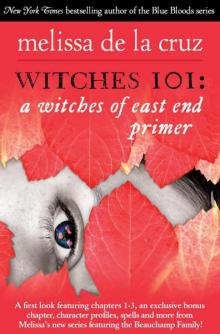 Witches 101: A Witches of East End Primer
Witches 101: A Witches of East End Primer Jealous?
Jealous?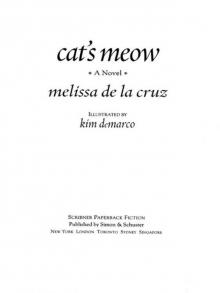 Cat's Meow
Cat's Meow Misguided Angel
Misguided Angel Birthday Vicious
Birthday Vicious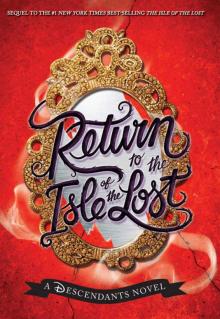 Return to the Isle of the Lost
Return to the Isle of the Lost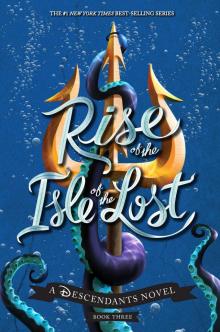 Rise of the Isle of the Lost
Rise of the Isle of the Lost Angels on Sunset Boulevard
Angels on Sunset Boulevard Double Eclipse
Double Eclipse Blue Bloods
Blue Bloods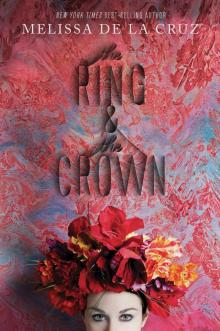 The Ring and the Crown
The Ring and the Crown The Ashleys
The Ashleys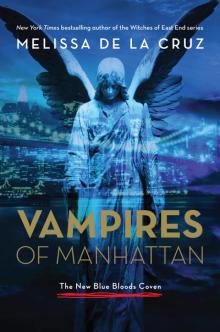 Les vampires de Manhattan
Les vampires de Manhattan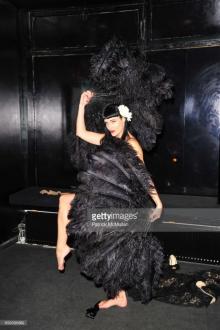 The Van Alen Legacy
The Van Alen Legacy Sun-Kissed
Sun-Kissed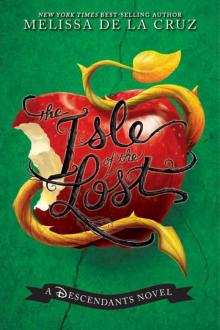 The Isle of the Lost
The Isle of the Lost Masquerade
Masquerade Witches of East End
Witches of East End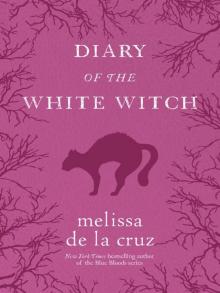 Diary of the White Witch
Diary of the White Witch Crazy Hot
Crazy Hot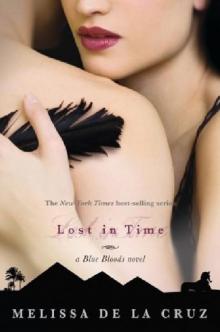 Lost in Time
Lost in Time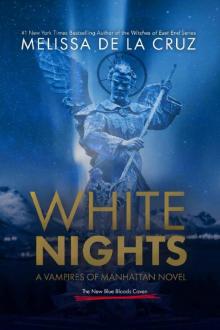 White Nights: A Vampires of Manhattan Novel
White Nights: A Vampires of Manhattan Novel Revelations
Revelations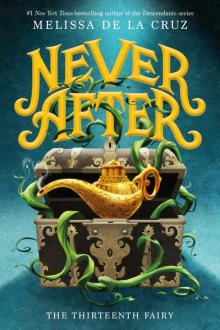 The Thirteenth Fairy
The Thirteenth Fairy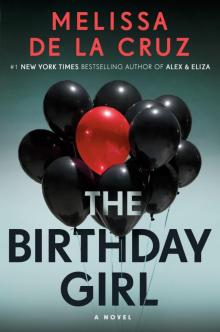 The Birthday Girl
The Birthday Girl Lip Gloss Jungle
Lip Gloss Jungle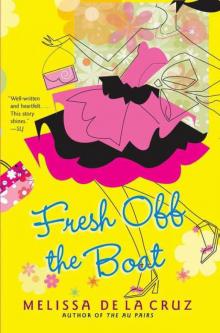 Fresh Off the Boat
Fresh Off the Boat Something in Between
Something in Between Winds of Salem
Winds of Salem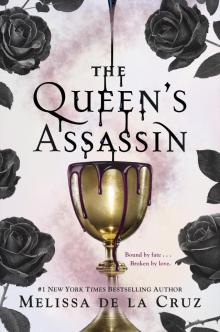 The Queen's Assassin
The Queen's Assassin Love & War
Love & War Social Order
Social Order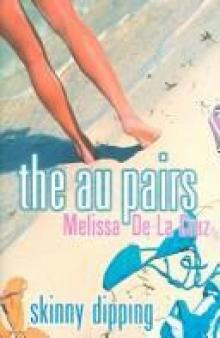 Skinny Dipping
Skinny Dipping 29 Dates
29 Dates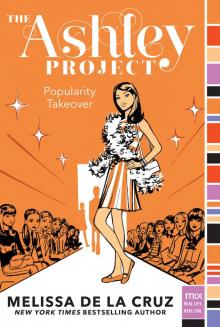 Popularity Takeover
Popularity Takeover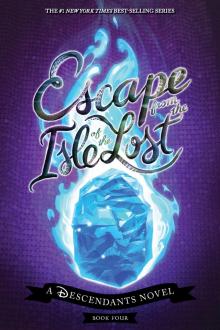 Escape from the Isle of the Lost
Escape from the Isle of the Lost Beach Lane
Beach Lane Bloody Valentine
Bloody Valentine All for One
All for One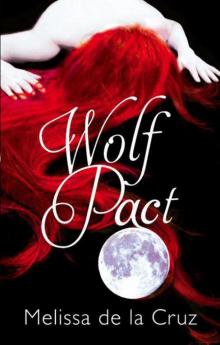 Wolf Pact: A Wolf Pact Novel
Wolf Pact: A Wolf Pact Novel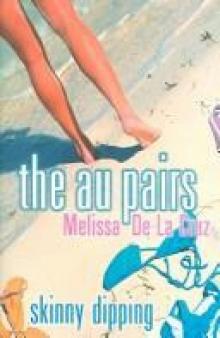 The au pairs skinny-dipping
The au pairs skinny-dipping Lip Gloss Jungle (Ashleys)
Lip Gloss Jungle (Ashleys) Crazy Hot (Au Pairs)
Crazy Hot (Au Pairs)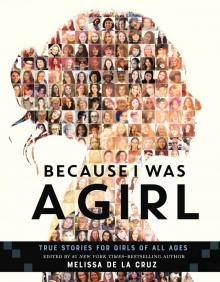 Because I Was a Girl
Because I Was a Girl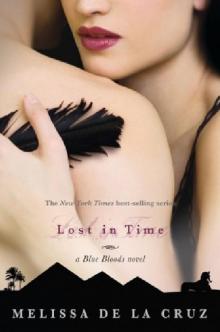 Blue Bloods 6 - Lost in Time
Blue Bloods 6 - Lost in Time Sun-kissed (Au Pairs, The)
Sun-kissed (Au Pairs, The) Bloody Valentine bb-6
Bloody Valentine bb-6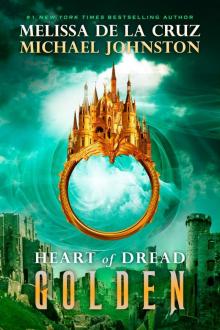 Golden
Golden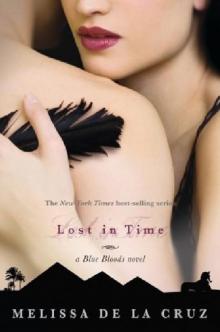 Lost in Time_A Blue Bloods Novella
Lost in Time_A Blue Bloods Novella Alex and Eliza--A Love Story
Alex and Eliza--A Love Story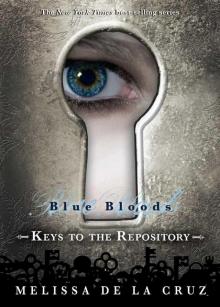 Blue Bloods: Keys to the Repository
Blue Bloods: Keys to the Repository Birthday Vicious (The Ashleys, Book 3)
Birthday Vicious (The Ashleys, Book 3)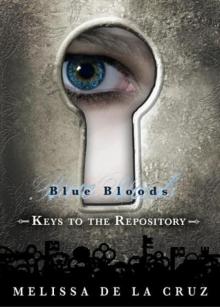 Keys to the Repository
Keys to the Repository Lost In Time (Blue Bloods Novel)
Lost In Time (Blue Bloods Novel) Stolen
Stolen Girls Who Like Boys Who Like Boys
Girls Who Like Boys Who Like Boys the au pairs crazy hot
the au pairs crazy hot Blue Bloods bb-1
Blue Bloods bb-1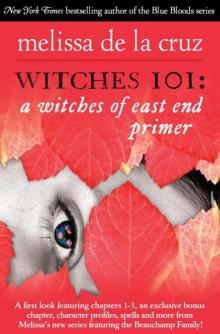 Witches 101
Witches 101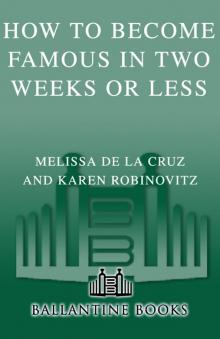 How to Become Famous in Two Weeks or Less
How to Become Famous in Two Weeks or Less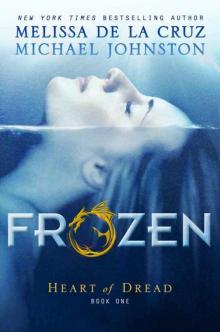 Frozen hod-1
Frozen hod-1 Jealous? (The Ashleys, Book 2)
Jealous? (The Ashleys, Book 2) Misguided Angel (Blue Bloods)
Misguided Angel (Blue Bloods) Winds of Salem: A Witches of East End Novel
Winds of Salem: A Witches of East End Novel The Gates of Paradise
The Gates of Paradise Beach Lane Collection
Beach Lane Collection Wolf Pact, The Complete Saga
Wolf Pact, The Complete Saga Gates of Paradise, The (Blue Bloods Novel)
Gates of Paradise, The (Blue Bloods Novel)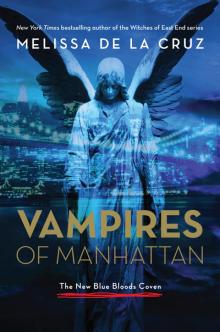 Vampires of Manhattan
Vampires of Manhattan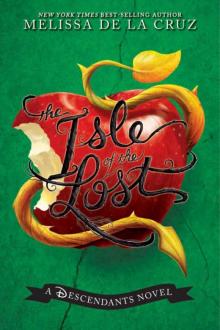 Isle of the Lost
Isle of the Lost Love & War_An Alex & Eliza Story
Love & War_An Alex & Eliza Story The Ashley Project
The Ashley Project Love & War--An Alex & Eliza Story
Love & War--An Alex & Eliza Story